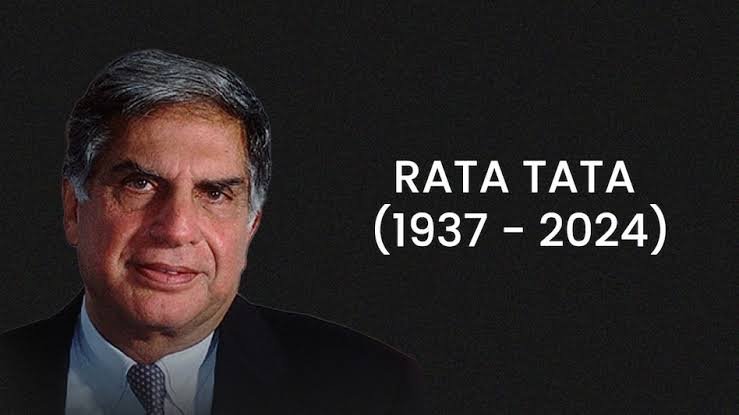From a visionary business leader to a national icon, the journey of Ratan Tata is described here
The death of Ratan Tata, whose name was synonymous with Indian industry and generosity, occurred on October 9, 2024, and his passing has left a vacuum in the hearts of millions of people. Tata passed away at the Breach Candy Hospital in Mumbai, where he had been brought two days before due to age-related health concerns, including fluctuating blood pressure. He was 86 years old when he took his final breath. Not only does his passing signify the end of an era for the Tata Group, but it also signifies the end of an age for Indian business and for worldwide philanthropy.
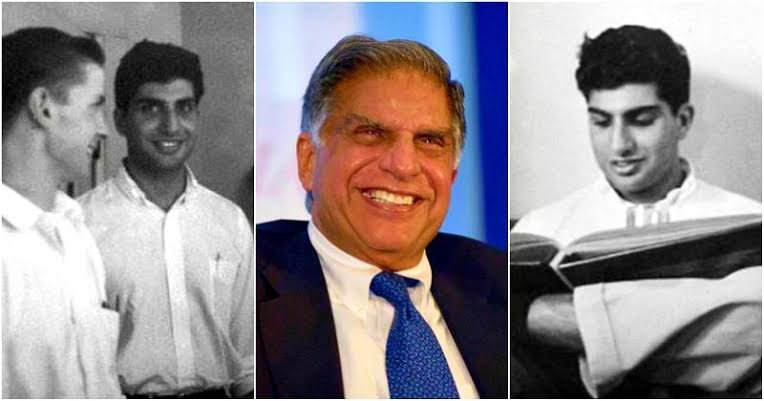
Shockwaves were sent out across India and beyond as the news of his dying was announced. Tributes flowed in from leaders across political, corporate, and social realms, emphasizing the great influence Tata had on countless lives. As part of his expression of grief, Prime Minister Narendra Modi referred to Tata as a “visionary business leader, compassionate soul, and an extraordinary human being.” These statements resonated with millions who revered Tata not just for his commercial skill, but for his humility, compassion, and consistent devotion to social issues.
A State Funeral to Honor Tata’s Legacy
Maharashtra Chief Minister Eknath Shinde declared that Ratan Tata would be granted a State funeral, an honor reserved for the most renowned individuals in India. The funeral will take place in the NCPA Lawns in Mumbai, where hundreds are anticipated to assemble to pay their final respects.
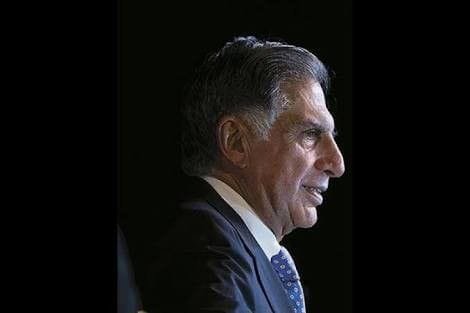
The decision to hold a State funeral underscores the enormous regard Tata garnered across the nation. The Maharashtra government’s declaration came shortly after Tata’s passing, with CM Shinde honoring Tata’s outstanding contributions to Indian culture, business, and philanthropy. “Ratan Tata’s legacy will continue to inspire generations. He was not only a giant of industry but a compassionate leader who utilized his money and influence to better society,” Shinde said.
Tributes Pour in from Across the Country
As news of Ratan Tata’s death spread, tributes flowed in from every part of the country. The Congress Party made a statement expressing deep sorrow over Tata’s demise, calling him a “titan of Indian industry and a philanthropist who shaped India’s corporate landscape.” Leaders from various political parties, business magnates, celebrities, and common individuals took to social media to voice their condolences and reflect on Tata’s life and accomplishments.
Many recalled Tata’s leadership during some of India’s most momentous corporate milestones, including the acquisition of worldwide companies like Jaguar Land Rover, and his vital involvement in establishing Tata Nano, the world’s most affordable car. However, more than his commercial triumphs, it was his kindness, humility, and vision for a better India that made an unforgettable imprint.
In a world where corporate executives are generally perceived as remote and disconnected, Ratan Tata was different. His hands-on attitude, his focus on employee welfare, and his willingness to listen to the demands of the average man made him liked across all sections of society.
Ratan Tata’s Philanthropic Legacy
While Ratan Tata will forever be regarded as a corporate titan, his generosity remains one of the most essential components of his legacy. Under his leadership, Tata Group continued its long-standing history of giving back to society. Through the Tata Trusts, Ratan Tata spearheaded programs in healthcare, education, rural development, and technology.
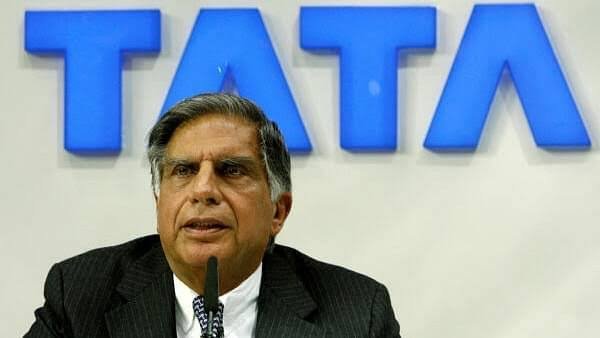
One of his most enduring achievements was to healthcare. The Tata Memorial Hospital in Mumbai, one of the major cancer treatment institutes in India, was funded and extended under his supervision. Tata’s focus was always on delivering world-class care to people who could not afford it, making cancer treatment accessible to millions of Indians.
Tata’s expenditures in education, particularly through organizations like the Indian Institute of Science (IISc) and the Tata Institute of Fundamental Research (TIFR), also highlighted his dedication to building a stronger, more educated India. He knew that innovation and research were crucial to India’s future, and via these institutions, he empowered generations of scientists, engineers, and intellectuals.
His contributions to rural development were equally noteworthy. From clean drinking water projects to programs aiming at boosting agriculture and empowering women in rural regions, Tata believed in the power of grassroots change. His legacy in these industries continues to uplift the lives of millions across India.
A Business Titan with a Human Touch
Ratan Tata’s tenure of the Tata Group from 1991 to 2012 was defined by both tremendous success and a distinctive leadership style that combined financial skill with a deep sense of ethics and responsibility. When Tata took over as Chairman, India was on the edge of massive economic reforms, and he aggressively positioned the Tata Group to succeed in this new environment.

His decision to buy iconic global brands like Jaguar Land Rover and Corus Steel converted the Tata Group into a global powerhouse. But what actually set Tata apart was his ability to preserve the group’s dedication to ethical business practices even as it developed dramatically. The Tata Group, under his leadership, became a symbol of business accountability and honesty.
In many ways, Tata was the essence of “capitalism with a conscience.” He constantly spoke about the need for businesses to focus on more than just profitability. In his words, “The most important attribute you can have is compassion, not only for your peers but also for the less fortunate.” This attitude governed the Tata Group’s CSR initiatives, and it inspired a new generation of Indian entrepreneurs to think about the social effect of their businesses.
The Man Behind the Legend
Beyond the boardroom and his charity endeavors, Ratan Tata was noted for his modesty and simplicity. Despite being one of the wealthiest individuals in India, Tata kept a modest lifestyle. He lived in a basic house, drove his own car, and was recognized for being approachable, whether by staff or the public.
Tata was also extremely interested about design and engineering. He famously performed a hands-on role in the development of Tata Nano, India’s most cheap automobile. While the Nano didn’t reach the commercial success he had hoped for, it was a reflection of Tata’s passion in invention and his ambition to create something that might help the masses.
In addition to his career in business, Tata was a lover of animals, especially dogs. His affection for animals was well-known, and he supported various animal welfare organizations. His Instagram account, which he started in his 80s, became a platform not merely for his opinions on business and philanthropy, but also for expressing his passion for dogs.
A National Icon
Ratan Tata’s impact on India goes far beyond his status as a business leader. Over the years, he became a national symbol, reflecting the qualities of integrity, humility, and service to the nation. His talks, interviews, and writings inspired millions of young Indians to pursue their aspirations while staying true to their principles.
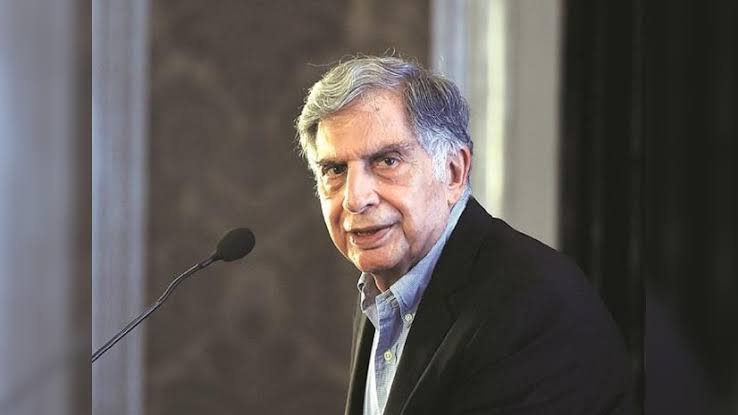
For many, Tata was a representation of the finest of India – a country that is entrepreneurial, compassionate, and forward-thinking. His leadership style, distinguished by a focus on ethics, innovation, and diversity, set a new benchmark for corporate India. He established that it is possible to attain enormous success without compromising on values.
In acknowledgment of his achievements, Tata earned numerous medals, including the Padma Bhushan and Padma Vibhushan, two of India’s highest civilian distinctions. But for Tata, the greatest satisfaction was knowing that his labor had made a difference in the lives of others.
The Final Goodbye
As the nation prepares to bid a last farewell to Ratan Tata, the atmosphere at the NCPA Lawns in Mumbai is gloomy yet imbued with a sense of appreciation. Thousands of people from all walks of life are expected to gather to pay their last respects to a man who touched so many lives.
From business leaders to political officials, from celebrities to everyday individuals, the outpouring of grief is a monument to the impact Tata had on India and the world. His demise signals the end of an era, but his legacy will continue to inspire generations to come.
As the country mourns the loss of one of its greatest sons, it is evident that Ratan Tata’s achievements will never be forgotten. His efforts in business, philanthropy, and social issues has left an indelible effect on India, and his memory will live on in the hearts of millions.
Conclusion: A Life Well Lived, a Legacy That Will Endure
Ratan Tata’s passing is a terrible loss for India and the world. Yet, even in his demise, his legacy continues to inspire. He showed us that success is not just about riches and power, but about using those resources to make a difference in the world. Through his leadership, philanthropy, and kindness, Tata left behind a model for future generations to follow.
As India mourns the passing of this great leader, it is also a time to reflect on the ideals he stood for – humility, compassion, and service to society. Ratan Tata may no longer be with us, but his spirit and legacy will remain a guiding beacon for years to come.

